Britain's original Tour de France ten: Success and saddle sores in 1955
10 British cyclists will start the 2015 Tour de France, equalling the record set in 1955. We chart the success and failure of the original British Tour 10 in their historic race 60 years ago

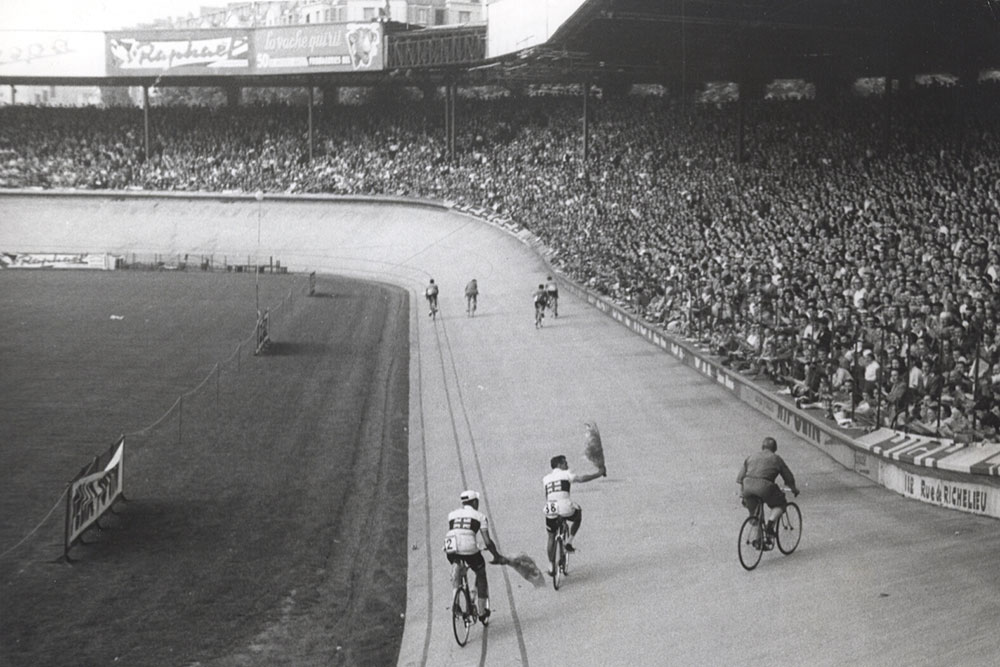
Brian Robinson and Tony Hoar finish the Tour de France 1955. Photo: Cycling Weekly archive
The latest race content, interviews, features, reviews and expert buying guides, direct to your inbox!
You are now subscribed
Your newsletter sign-up was successful
This year's Tour de France sees a record-equalling 10 British riders taking to the start line - matching the number of Brits who started the 1955 edition of the race.
Much has happened to British cycling in those intervening 60 years, not least overall Tour de France victories by Sir Bradley Wiggins and Chris Froome in 2012 and 2013 respectively. But back in 1955, Britain had yet to establish itself in the world's biggest bike race.
All 10 of those 1955 Brits were riding for the national team, the first occasion that the nation had taken part in the race - back in a time when the race was contested by national and regional squads, rather than trade teams. It was a historic event, marked by Cycling Weekly's predecessor Cycling magazine in its July 6 1955 issue.
The team consisted of Brian Robinson, Fred Krebs, Ian Steel, Bob Maitland, Tony Hoar, Bernard Pusey, Stan Jones, Dave Bedwell, Bevis Wood and Ken Mitchell, and was supported by Hercules Cycles. Hercules Cycles director DD MacLachlan had been instrumental in getting the nation a place in the race.
>>> Brits in the Tours, from Robinson to Froome
"Britain's greatest opportunity is that of the valuable experience which participation will provide in ample measure," wrote Cycling's Ken Bowden.
"Our men will undoubtedly take any chances offered to show their grit, especially in the settling-down stages."
The latest race content, interviews, features, reviews and expert buying guides, direct to your inbox!
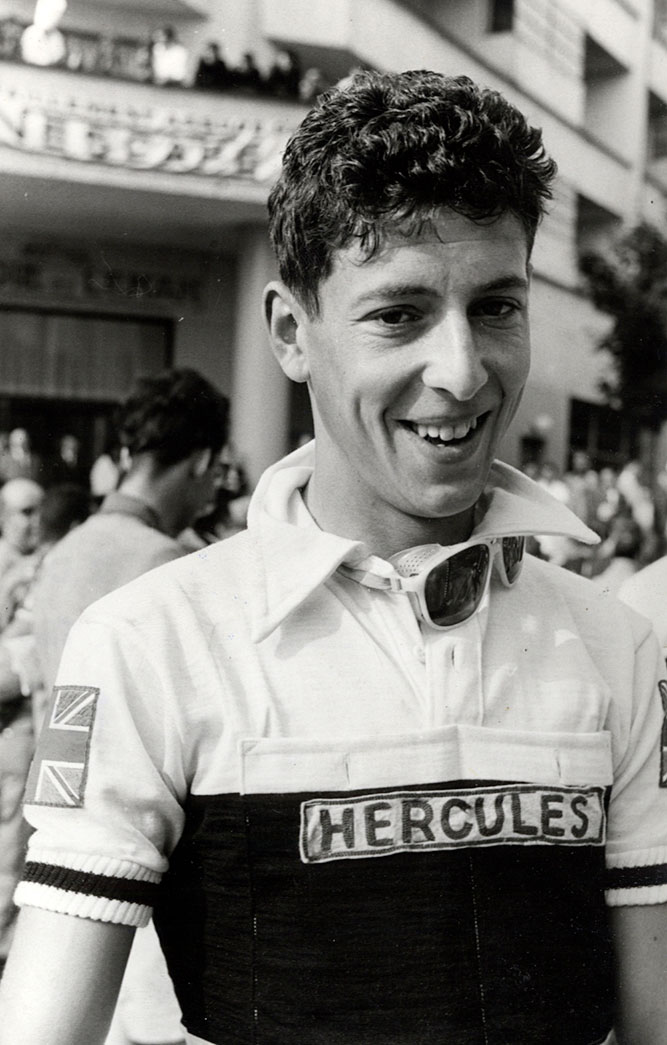
"What we can definitely bank on, however, in wishing these men and their officials good luck, is the best display of British guts and tenacity in any foreign event so far. And we can hope that it will be sufficient to carry at least a handful of them through to the end."
Bowden noted that Robinson was the fledgling team's best bet in the race, having marked out his 'outstanding' performance on the continent leading up to the Tour.
The 1955 Tour opened in Le Havre, a convenient Grand Depart for the Brits. It then travelled 2800 miles (4506km) and featured 22 classified climbs, many run in blisteringly hot conditions.
By the time the diminished peloton reached Paris on July 30, Frenchman Louison Bobet had secured his third consecutive victory in the race, beating Belgian Jean Brankart by four minutes and 53 seconds.
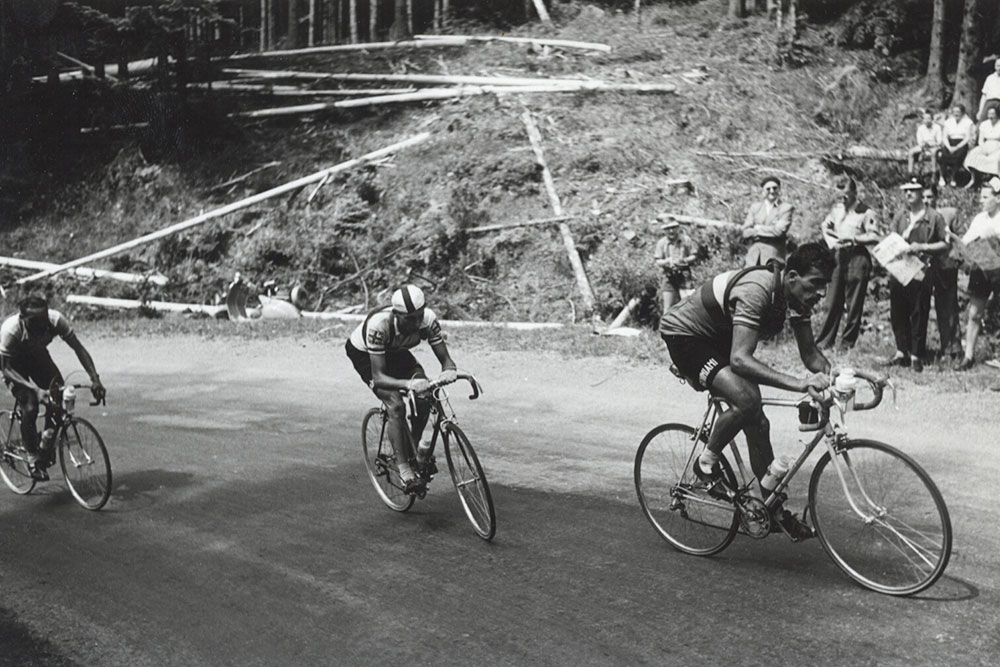
Of those original 10 Britons, only two had made it to the finish: Robinson and Hoar. For Yorkshireman Robinson it was the start of a great relationship with the race, and he became Britain's first Tour de France stage winner three years later in 1958.
>>> Brian Robinson: Britain's first Tour de France hero
Robinson finished the 1955 race in 29th place, one hour, 57 minutes and 10 second adrift of Bobet. Hoar put in a memorable result, finishing doggedly as last man - Lanterne Rouge - in 69th place, six hours and six minutes behind Bobet. Robinson's all-round performance, particularly on the climbs in the Alps and Pyrenees, brought him to the attention of the world.
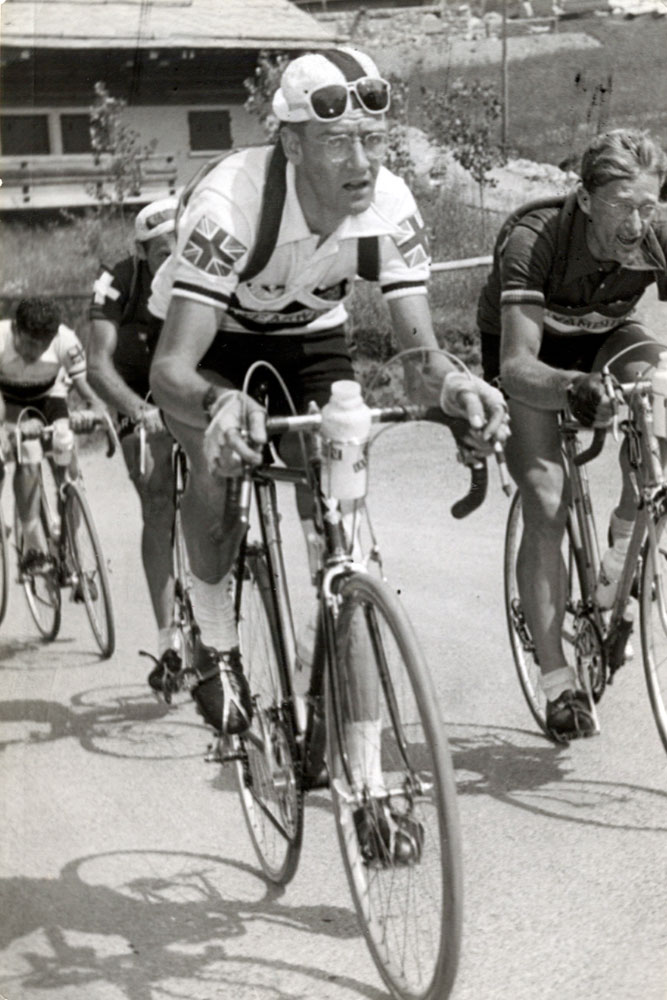
Fatigue, injury and crashes had claimed the other eight Brits. Mitchell withdrew after suffering from a boil in the saddle region, to which he succumbed despite wrapping a tyre around his saddle to alleviate the pressure.
Krebs quit with a knee injury, Maitland crashed and suffered with injury, Steel finished outside the time limit on one stage, and Jones had a day of bad luck that saw him puncture several times and also miss the time cut.
"Only two completed the course," wrote John David in his summary of the race for Cycling magazine on August 3. "But these two have shown in this, our preparatory year, that they and others will ride faster in these wheelmarks in years to come."
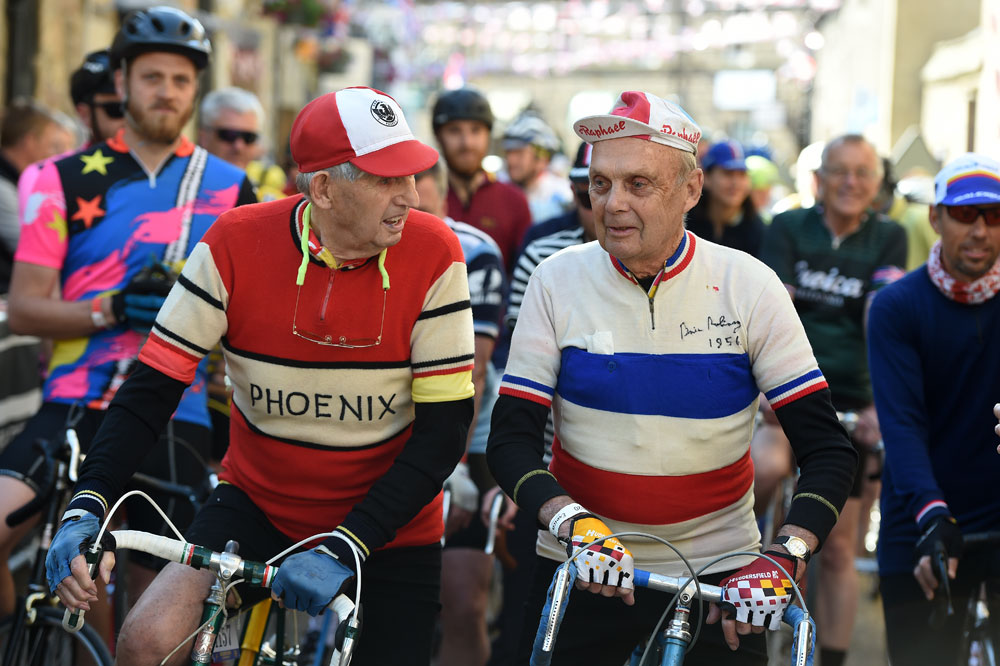
David was, of course, right. And now, the 2015 line-up of British riders in the Tour de France is the strongest ever seen, with 2013 race winner Chris Froome ranking as one of the leading contenders backed at Team Sky by four further British talents in the shape of Geraint Thomas, Luke Rowe, Peter Kennaugh and Ian Stannard.
>>> The 10 British riders of the 2015 Tour de France
Also there is Britain's most successful professional cyclist in history, Mark Cavendish (Etixx-QuickStep), who has amassed 25 Tour stage wins in his career and looks set to add to that tally. Steve Cummings (MTN-Qhubeka), Alex Dowsett (Movistar), and Adam and Simon Yates (Orica-GreenEdge) complete the 10.
Sixty years ago the international achievements of today's current crop of British riders was just a dream, but the roots of today's successes are firmly placed in the achievements of that historic 1955 Tour de France team.
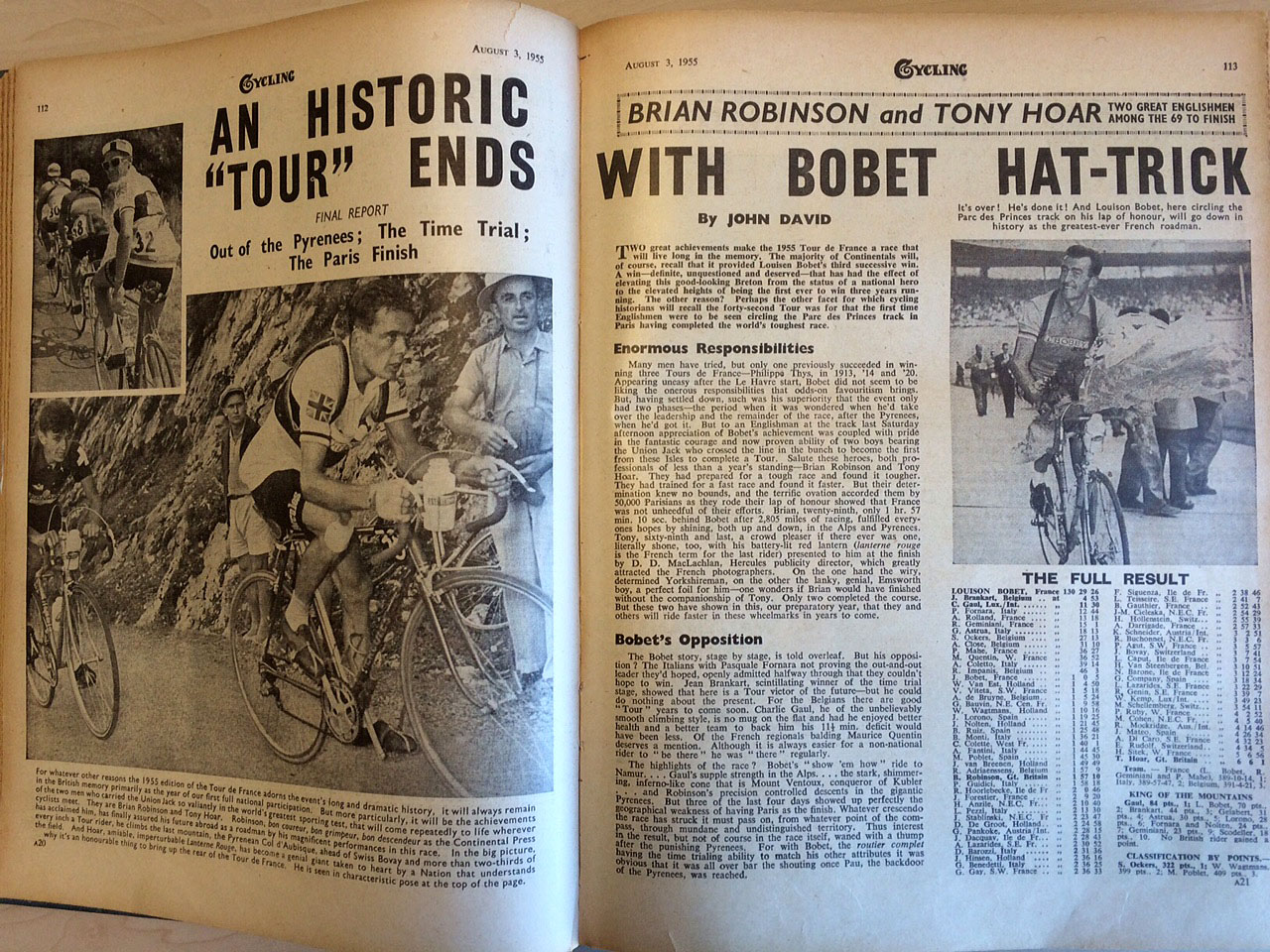
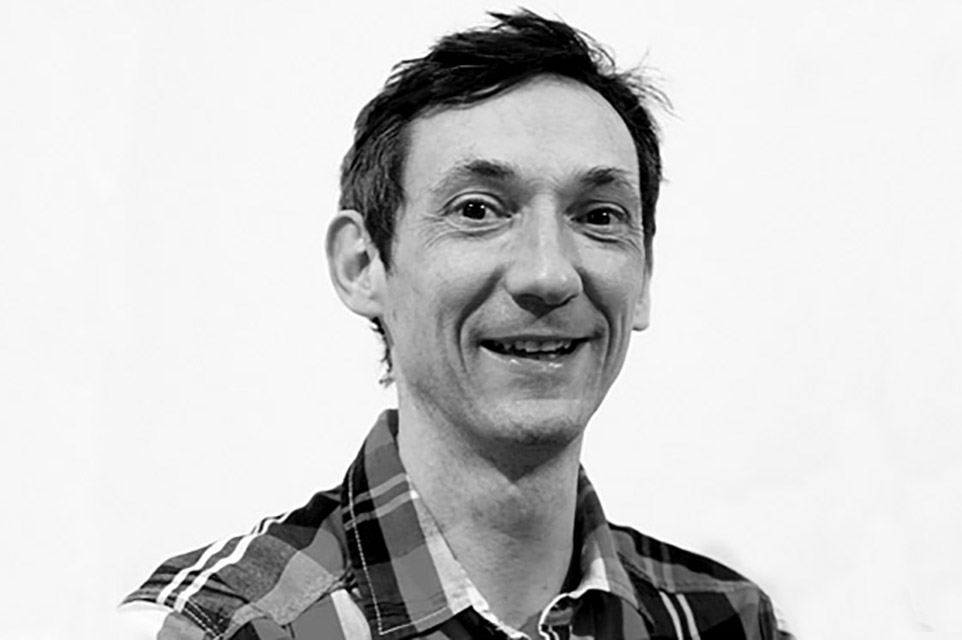
Nigel Wynn worked as associate editor on CyclingWeekly.com, he worked almost single-handedly on the Cycling Weekly website in its early days. His passion for cycling, his writing and his creativity, as well as his hard work and dedication, were the original driving force behind the website’s success. Without him, CyclingWeekly.com would certainly not exist on the size and scale that it enjoys today. Nigel sadly passed away, following a brave battle with a cancer-related illness, in 2018. He was a highly valued colleague, and more importantly, an exceptional person to work with - his presence is sorely missed.